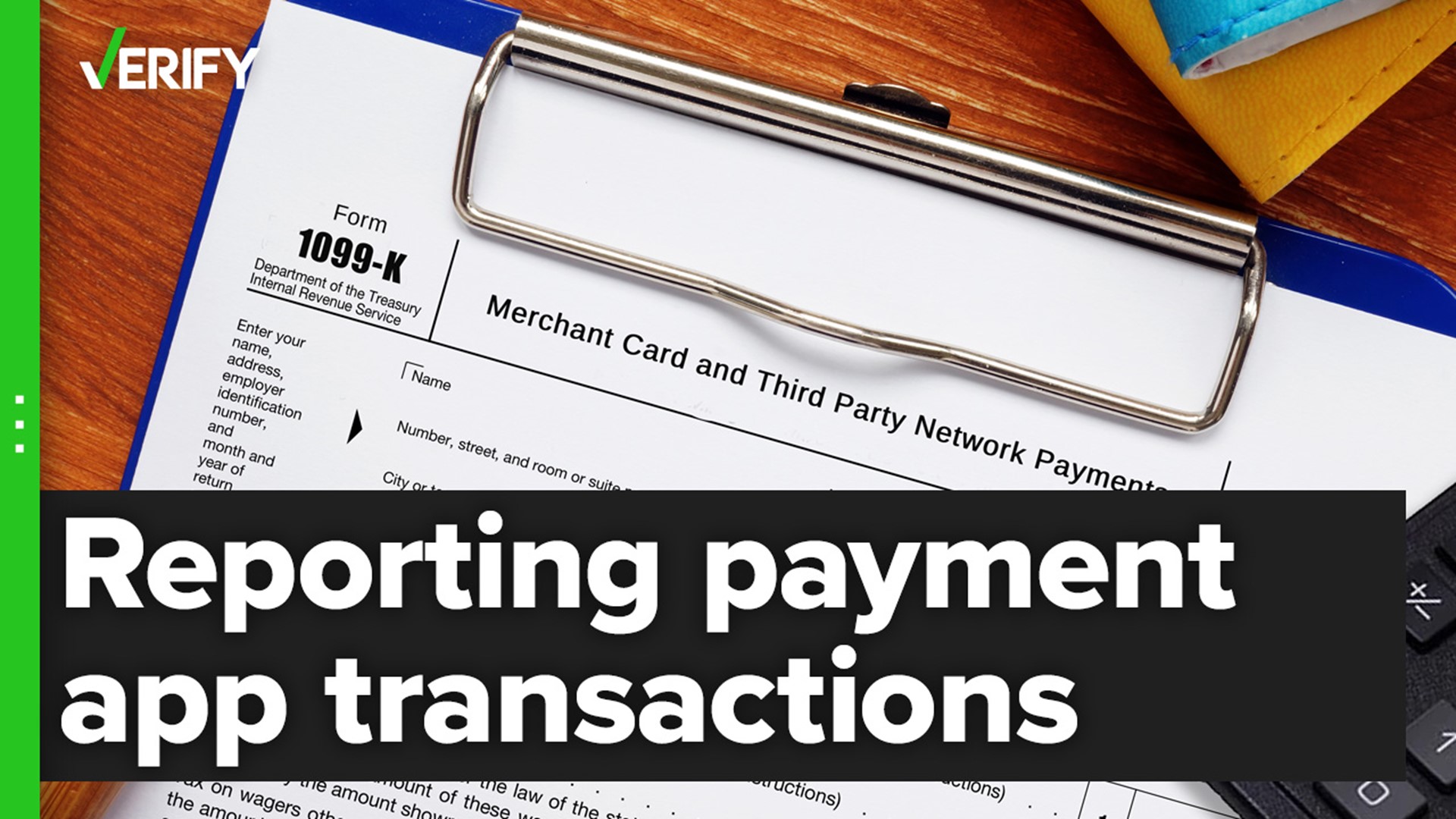UPDATE: On Friday, Dec. 23, the IRS announced it is delaying a rule by one year that would require payment apps such as Venmo, PayPal and Cash App to report certain transactions of more than $600 to the IRS. The original story continues as published below:
As of Jan. 1, 2022, people who use payment apps like Venmo, PayPal and Cash App are required to report certain transactions that total more than $600 to the Internal Revenue Service.
VERIFY viewer Cindi emailed us to ask if this means anything over $600 has to be reported to the IRS. On social media, people are also talking about what is required to be reported by users of those apps.
THE QUESTION
Are all payment app transactions over $600 required to be reported to the IRS?
THE SOURCES
THE ANSWER
No, not all payment app transactions over $600 need to be reported to the IRS. Income is required to be reported, but you might have to prove a transaction was not income if you receive a 1099-K form.
WHAT WE FOUND
Users of third-party applications, like Cash App, Venmo or PayPal, only have to report transactions over $600 to the Internal Revenue Service (IRS) if it is considered income that would normally be reported anyway.
For example, if you accepted an app payment of $600 or more for a service or product – that is considered taxable income. Friends and family transactions, like rent payments or dinner reimbursements, aren’t taxable income.
Each respective payment app sends an IRS 1099-K form, a form used to report any taxable income paid through third-party applications, to users if they recorded more than $600 in income using the app.
More from VERIFY: Yes, users of cash apps will get a 1099 form if annual commercial payments are over $600
The IRS says if you get one of these forms, but the money you received is not considered income, you’ll have to reach out to the payment app for a correction.
“Remember, money received through third-party payment applications from friends and relatives as personal gifts or reimbursements for personal expenses is not taxable. Those who receive a 1099-K reflecting income they didn’t earn should call the issuer. The IRS cannot correct it,” the agency’s website says.
According to PayPal’s website, the company provides a list of transactions they include in the calculation of total gross sales for goods or services. This reconciliation report is provided in the user’s PayPal account under the “Tax Documents” section.
If there are corrections that need to be made, or there are items on the report that need to be disputed, the user has to contact PayPal directly.
“Let us know the transactions that you didn’t receive for sales of goods or services. We'll need the specific transaction IDs for each payment you believe we shouldn’t include,” PayPal says.
“We don’t report payments such as personal payments sent to family or friends. ” the website adds.
PayPal will then investigate the transactions to verify they are not business-related and upon verification, they will issue new forms.
PayPal owns Venmo, so the process for that app is similar. Venmo issues tax documents electronically and if someone needs to request an update to their tax form, they need to contact Venmo directly to make any changes.
Cash App says 1099-K forms are only sent to those users with Cash for Business accounts, which means if you have a personal Cash App account, you won’t get a 1099-K and thus, “Cash App will not report any of your personal transactions to the IRS.”
According to a blog post from Intuit’s TurboTax, if someone doesn’t notice their 1099-K form was incorrect, and still files their taxes as normal, they can file an amended return. The IRS requires a letter of explanation outlining which of the transactions were personal and were not income.

